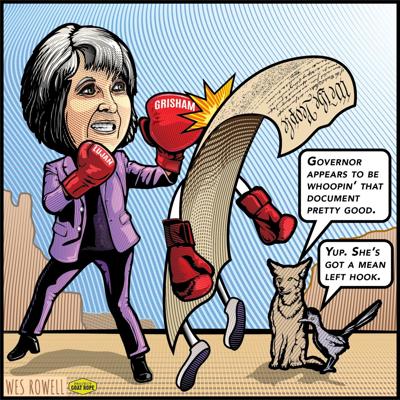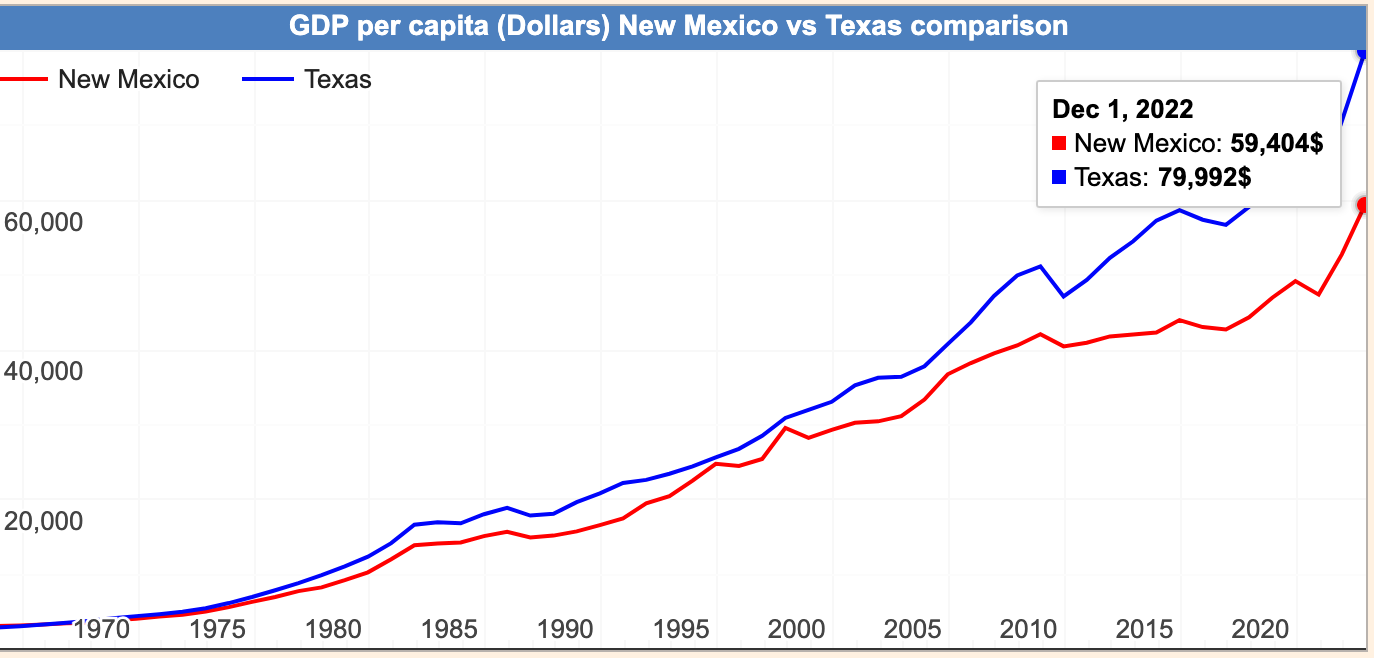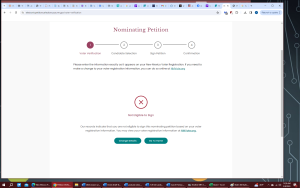The following appeared in the Albuquerque Journal on March 10, 2024.

March 11, 2024, is the fourth anniversary of Gov. Lujan Grisham’s first public health emergency dealing with what was then the start of the COVID 19 pandemic.
Although restrictions varied widely throughout the next three years, the public health emergency did not end until March 31, 2023.
Under New Mexico’s public health emergency laws, governors have wide discretion to make policies unchecked by the Legislature or any other elected body. Objectively, it is hard to see any significant achievements thanks to the governor’s restrictive COVID policies.
New Mexico suffered the third-highest COVID death rate among U.S. states;
New Mexico students lost over a year in classrooms helping to push students’ already poor academic performance down even further to dead-last nationally;
Businesses of all types — especially small ones — were closed, often arbitrary reasons and lost forever, while big chains were able to gain market share and continue operations;
Thousands of workers, including in hard-to-fill health care jobs, were forced to receive vaccines and boosters regardless of age, health condition, and natural immunity.
These and many other decisions made by Gov. Lujan Grisham and the health establishment during COVID are widely seen as mistakes today, especially the school shutdowns. And, while the Legislature may or may not have pushed back against her, the lack of debate and justifying data presented at the time should at least highlight problems with one-person rule.
It is long past time for the Legislature to re-assert its “seat at the table” as a coequal branch of our government when it comes to emergencies. This is made all the more important thanks to the governor’s further abuse of New Mexico’s broad public health orders issued during 2023, some of which are still in effect, relating to guns.
Numerous other public officials made the same mistakes as Lujan Grisham did during the pandemic. But, she is the only one that tried to use a public health order to overturn the 2nd Amendment to the U.S. Constitution by banning the carrying of a gun in her state’s most populous county.
Her overreach was quickly overturned by the courts, and rightly so, but what if it wasn’t? What if next time she or another governor decides that climate change is the next “public health emergency” and places restrictions on travel or energy use? These are not far-fetched examples and there is nothing in current law restricting this or any future governor from doing it.
And, since travel and energy are not explicitly spelled out as rights in the U.S. Constitution, New Mexico’s liberal courts could easily rubber stamp such moves.
New Mexico desperately needs to reform its public health emergency statutes. Attempts have been made by Republicans in the Legislature, with a few courageous Democrats, to require legislative approval after an emergency has been in effect for 90 days. These have been killed by majority Democrats before even a single floor vote in every session.
But even a 90-day restriction isn’t enough. There need to be protections to ensure that a “public health emergency” means a real emergency. There was no COVID “emergency” by March of 2023. Crime has been a problem for decades here in New Mexico. It should be dealt with by the Legislature and courts. And climate change is a long-term challenge that again must be dealt with legislatively, not via one-person rule thanks to an emergency declaration.
All 112 members of the Legislature are up for election this fall. While there are many pressing issues facing New Mexico, laws relating to how and for how long “public health emergencies” are declared should receive significant attention.
Paul Gessing is president of New Mexico’s Rio Grande Foundation, a research and educational organization dedicated to promoting prosperity for New Mexico based on principles of limited government, economic freedom and individual responsibility.























